'Redundancy gave me the push I needed to follow my dreams'
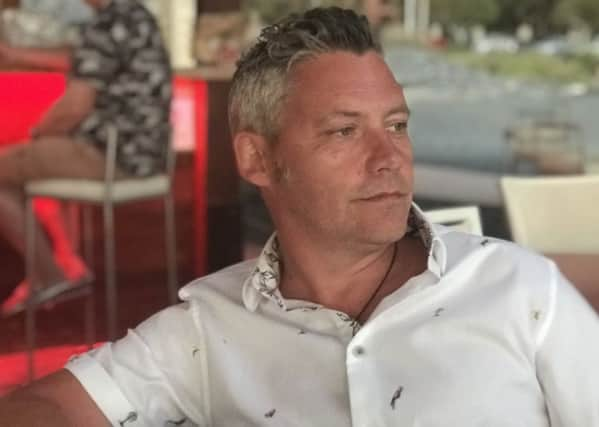

“I didn’t think working class kids like me grew up to become writers. I thought it was something you had to be posh or clever to do.”
Succinctly summing up his views as a youngster, David Barnett smiles wryly as today he writes almost constantly juggling working as a freelance journalist with writing fiction and penning comic strips and he can’t imagine a world without written words.
Advertisement
Hide AdAdvertisement
Hide AdDavid who had a long career in regional newspapers, including the Lancashire Post and Wigan Post, now works as a freelance journalist for most of the UK national press and is the author of several novels.
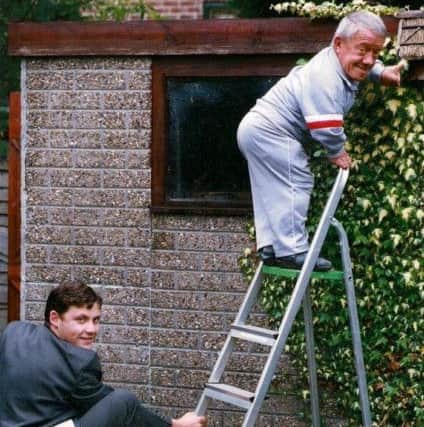

His book, Calling Major Tom, a heartwarming comedy about an unexpected astronaut who has given up on the world and strikes up an unlikely friendship with a Wigan family, has sold more than 60,000 copies in the UK and has now been optioned for a film. However David, 48, married to Claire with children Charlie, 14 and Alice, 13, confesses at times his current achievements seem as out-of-this world as being in space as he never harboured childhood ambitions of writing books.
David, who grew up in Ince, Wigan, as an only child to builder dad Malcolm, who died two years ago and mum Muriel, who still lives there, explains: “I loved reading as a child and read voraciously and haunted the libraries reading anthing I could get my hands on. But although I read widely and can remember being good at writing stories in English, it never occurred to me writing could be a job. As I grew older and realised writing could be a career, I thought it wasn’t something for the likes of me. I didn’t think working class kids grew up to become writers.”
Instead, while at Rose Bridge High School, in Wigan, David chose to go into science, something he now describes as “an odd decision” as he admits he “didn’t have much aptitude for it.”
Advertisement
Hide AdAdvertisement
Hide AdChuckling, David, who now lives near Bingley, Bradford, says: “I think the reason behind it was because I was massively into comic books and thought I could perhaps do experiments on myself and give myself superpowers.At that age, I either wanted to have superpowers or go into space.”
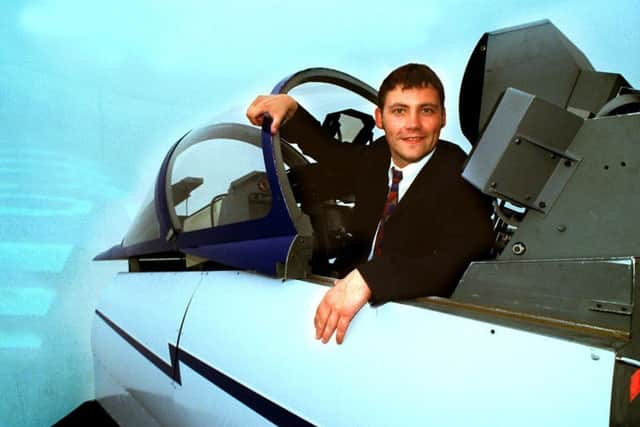

Abandoning a physics A-level after realising it wasn’t for him, David recollects the first time he realised he wanted to become a journalist was after watching the film All The President’s Men about the Watergate Scandal. Soon after, David had to carry out work experience and his school found him two weeks in an insurance office. David recalls: “I thought to myself: ‘No chance!’ So I rang the Wigan Observer and begged: ‘They want to send me to an insurance office. Please can I come to you instead?’”
Work experience reinforced David’s desire to become a journalist. David remembers: “I was with journalists including Geoffrey Shryhane and Richard Bean and they were like celebrities to me. Being in the same room as them was awe-inspiring.”
After Winstanley Sixth Form College in Wigan, David studied a journalism course in Preston. He finished in May 1989 and immediately began working at the Chorley Guardian. David says: “I walked into that little office in Chorley and thought: ‘Yes! I have finally arrived in journalism.’”
Advertisement
Hide AdAdvertisement
Hide AdA year later, David moved to the Lancashire Evening Post (now Lancashire Post) – a move he describes as “massive” and akin to “moving to the Washington Post.”
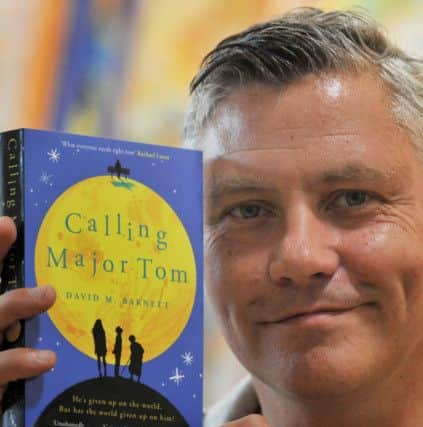

David’s first job at the Lancashire Evening Post was at the Leyland office. He then moved to the Wigan office for a couple of years which he recalls was great as not only was it his home town, the office was based above a pie shop.
David then moved to the Lancashire Evening Post in Preston where he did general reporting and business reporting before eventually moving on to the news desk.
David credits working as a journalist covering everything from court cases to interviewing Star Wars R2D2 actor Kenny Baker for giving him the skills he uses to write his successful novels today.
Advertisement
Hide AdAdvertisement
Hide Ad“I don’t think I would be able to write the sort of fiction I’m writing now without the experience of life I had as a journalist. The best thing about journalism is meeting people from all walks of life. You can be doing anything from covering a royal visit to sitting in the front room of someone who has just lost a loved one. You learn to deal with such different situations. It gives you skills in dealing with and understanding people.”
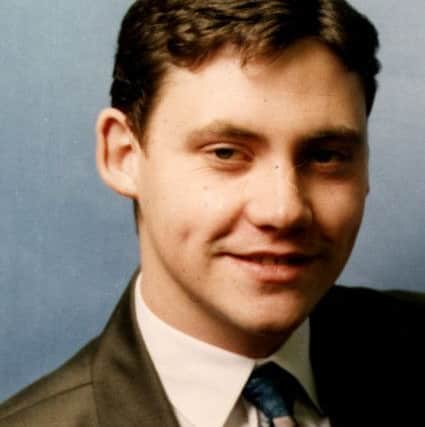

During his time at regional papers, David met a huge variety of people in quirky situations covering plenty of hilarious tales. A wide grin spreads across David’s face as he outlines a memorable court case in Preston.
“This man was up in court for a driving offence. He had washed an Oriental rug and draped it across his car and couldn’t see out of his windscreen. He was driving really fast around Preston to get it dry. He drove past two traffic cops who told the court they couldn’t believe their eyes and thought it was a flying carpet!
“It’s moments like this you realise: ‘This is human life!’”
David also remembers the serious aspect of journalism – such as “death knocks” – interviews carried out with bereaved families. “That can be very difficult but when you get feedback from the families saying how much it helped them, it makes it all worthwhile.
Advertisement
Hide AdAdvertisement
Hide Ad“There is comedy and tragedy and all points in between working in newspapers.”
David got together with wife Claire, whom he married in late 2000. Claire came to work at the Lancashire Evening Post as a reporter and David was news editor at the time. In 2001, David left the Lancashire Evening Post. He explains: “I had been having itchy feet for a while and was offered features editor at the Telegraph and Argus in Bradford and Claire got a job at the same paper. I almost regretted leaving Preston and Lancashire as I was having such a good time. But I felt ready for a change.”
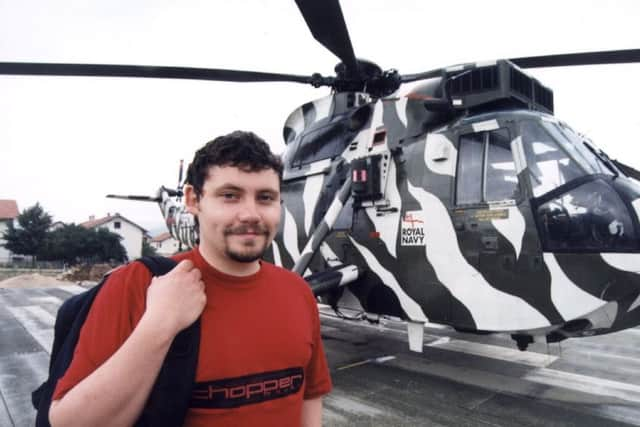

At Bradford, David’s career went upwards but he says he became more involved in management and further away from his love for actual journalism.
While working in regional papers, David first decided to have a go at writing a novel. He wrote Hinterland and tried to get it published and received lots of rejections.
Advertisement
Hide AdAdvertisement
Hide AdDavid says: “I understood rejections were part of the process and kept writing new books. Each time, I did it a little bit better.”
David eventually had his first book published at the age of 35 in 2005 through a small independent press. This led to him being signed up by literary agent John Jarrold who is still his agent today. David had a few small press novels published and while he was delighted to be published, the books were not published in huge numbers. His first mainstream success as a novelist came in 2012 when American publisher Tor published his Gideon Smith series of novels.
David says: “They are Victorian fantasy novels and were huge fun to write and were well reviewed. By this time, we had our two children and as well as working my newspaper job, I wanted to spend as much time as possible with my family. So writing was very often done late at night when everyone else had gone to bed or stealing a few hours here and there. However, writing books, unless you are J K Rowling or Ian Rankine, doesn’t pay as much money as you think.”
In April 2015, David was dealt a huge blow when he discovered he was being made redundant for the Telegraph and Argus as part of a wider round of redundancies.
Advertisement
Hide AdAdvertisement
Hide AdDavid admits: “Being made redundant felt like a massive disaster at the time. We had two young children and were living as most people do from month-to-month.
“It felt like a massive smack in the face and I had no idea what I was going to do. I’d been a journalist for more than 25 years and thought I didn’t know how to do anything else.”
David praises wife Claire for encouraging him to use the opportunity to do what he’d always dreamed of – to be a freelance journalist.
David explains: “I’d always talked about it as I wanted to get back to my first love of writing. But the time never seemed right to abandon a regular salary and full-time job. However, redundancy forced my hand and Claire made me realise I could do it.”
Advertisement
Hide AdAdvertisement
Hide AdDavid contacted a variety of national newspapers, magazines and online media and began working as a freelance journalist straight away.
His writing caught the attention of an editor at Orion Books who approached David about writing a novel for them. Calling Major Tom was born and published in June 2017.
David says: “It was a complete change for me. It is a funny, bittersweet novel set in Wigan and space. It is quirky and different and I don’t think even the publishers were ready for how popular it would be. Sales have been phenomenal – around 60,000 in the UK and rights to publish have been sold to 10 different countries. It’s amazing to know a little story set in Wigan is published all over the world.”
The biggest news for David came when he was told Calling Major Tom had been optioned for film by award winning content production company Vision3.
Advertisement
Hide AdAdvertisement
Hide Ad“Hearing that was mind-blowing. Vision3 are primarily involved with special effects in films such as Gravity. Now they want to make their own feature films and Calling Major Tom will be their first one.
“It’s amazing and humbling enough when you read reviews on Amazon where people you’ve never met say they love your book. When someone then sees the potential in your book to become a film, it is astonishing.”
A chance meeting at a comic convention in 2016 led to another of David’s childhood dreams coming to fruition. David says: “I was really into comics as a child and loved Marvel, DC and Superhero. Back in the 1980s when I was a teenager, geek was a dirty word and I was a geek.”
David was at a comic convention in Leeds with his son Charlie when he met Shelley Bond, a comic editor in the States. Their conversations resulted in David writing new monthly comic Punks Not Dead published by IDW’s new imprint Black Crown.
Advertisement
Hide AdAdvertisement
Hide AdIt is about a 15-year-old lad called Fergie from Preston who meets the ghost of a dead punk rocker called Sid who only he can see and hear.
David says: “The artist is Martin Simmonds and he is British, too. I wanted to base the story in the UK but didn’t want another story in London. I thought it was time these Americans had a bit of Lancashire.
“Punks Not Dead has been really well received and is a childhood ambition fulfilled – to see my name on the front of a comic book. My 10-year-old self would be amazed.”
David’s second book for Orion published as David M Barnett, The Lonely Hearts Cinema Club, is now out as an e-book and will be published as a paperback in July. It is set in a nursing home on the Lancashire coast near Morecambe and tells the story about what happens when the managers of the nursing home open up rooms to students from the local university.
Advertisement
Hide AdAdvertisement
Hide AdDavid says: “All these old people and young people initially clash but then bond over old movies. There is a mystery element as well.
“I wanted my books to be set in the North featuring working class people.
“Ordinary working class people don’t get represented in contemporary literature enough.”
David is now on the crest of a wave and loving the huge variety of writing he gets to do.
Advertisement
Hide AdAdvertisement
Hide AdDavid says: “Redundancy was the push I needed to follow my dreams.
“A lot of people say: ‘All things happen for a reason.’ But I don’t believe in destiny. I believe you have to work hard to make your own destiny.”